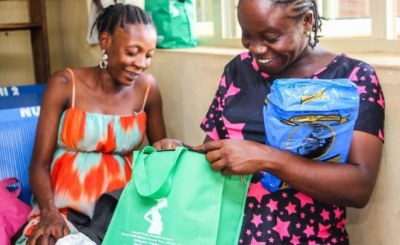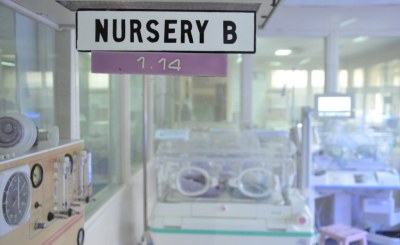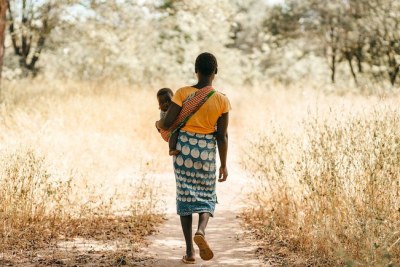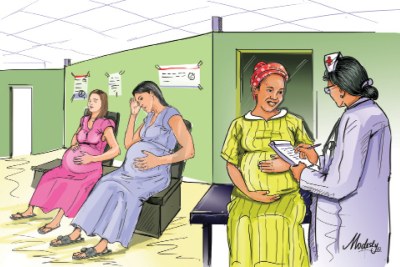-
Nigeria: Postpartum Depression in Nigerian Mothers Complicated by Stigma
Premium Times, 4 October 2023
PPD is a common yet often overlooked complication of childbirth, affecting 10-15 per cent of new mothers. Read more »
-
Nigeria: Prioritising Maternal Nutrition in Nigeria - an Imperative for Brighter Futures
Nigeria Health Watch, 20 September 2023
Editor's note: A healthy future starts with a healthy baby, and a healthy baby starts with a healthy mother. In this thought leadership piece, Olubunmi Oyebanji shares how we can… Read more »
-
Nigeria: Reducing Maternal Mortality in Nigeria - the SHI Response
Nigeria Health Watch, 18 September 2023
In 2016, Dr. Oluwakemisola Agoyi and Dr. Roland Ojo witnessed the benefits and drawbacks of traditional and community-based birth attendants (TBAs and CBAs) in delivering infants… Read more »
-
Nigeria: Gates Foundation Lists Measures to Prevent Stillbirth, Infant Death in Low - Middle-Income Countries
Premium Times, 13 September 2023
The report also highlights seven life-saving innovations, which they said could be easily implemented by midwives and birth attendants to reduce maternal mortality. Read more »
Postpartum Depression in Nigerian Mothers Complicated by Stigma
Postnatal depression (PPD) is a type of clinical depression that occurs in some women after childbirth. It is characterised by a persistent and pervasive feeling of sadness, hopelessness, and emotional distress that can significantly affect a new mother's ability to function and care for her baby and herself, writes Halimah Yahaya for Premium Times.
The symptoms of PPD can vary in severity but often include persistent sadness, inability to derive pleasure from previously enjoyable activities, fatigue, poor concentration, low self-esteem, sleep disturbances, changes in appetite, feeling detached from the baby or partner, and even thoughts of self-harm or harming the baby. Although there is no precise data on PPD prevalence in Nigeria, the National Institute of Health notes that globally, PPD is a common yet often overlooked complication of childbirth, affecting 10-15% of new mothers and also impacting fathers and partners.
In Nigeria, PPD is often misunderstood as a spiritual ailment or severe mental disorder, leading to inadequate treatment due to ignorance and fear of stigma. Many women suffer silently, and treatment is primarily available in specialized healthcare centers. To combat PPD, it's essential for affected individuals to seek help from partners, doctors, or gynecologists. It's also crucial for those who know someone experiencing PPD to encourage them to seek clinician assistance.
Postpartum depression, if left untreated, can last over a year and may lead to other diagnoses. It is better for people suffering from the ailment and their families to speak up and get help.
InFocus
-
Listening to woman's voices, needs, and unique perspectives is paramount to improving access to quality, respectful maternal healthcare, write Dabri Olohije Ohanu and Olu Read more »
-
A slowdown in the progress made during the past decade against maternal and infant mortality, is projected in the African region, Read more »
-
Nigeria ranks second among countries with high stillbirth rates in the world, according to experts from the Institute of Human Virology Nigeria (IHVN). The burden of Read more »
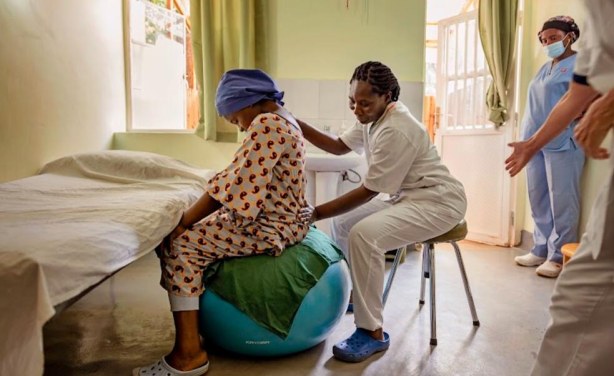
Panzi hospital midwives use a new birthing model to support survivors (file photo).
